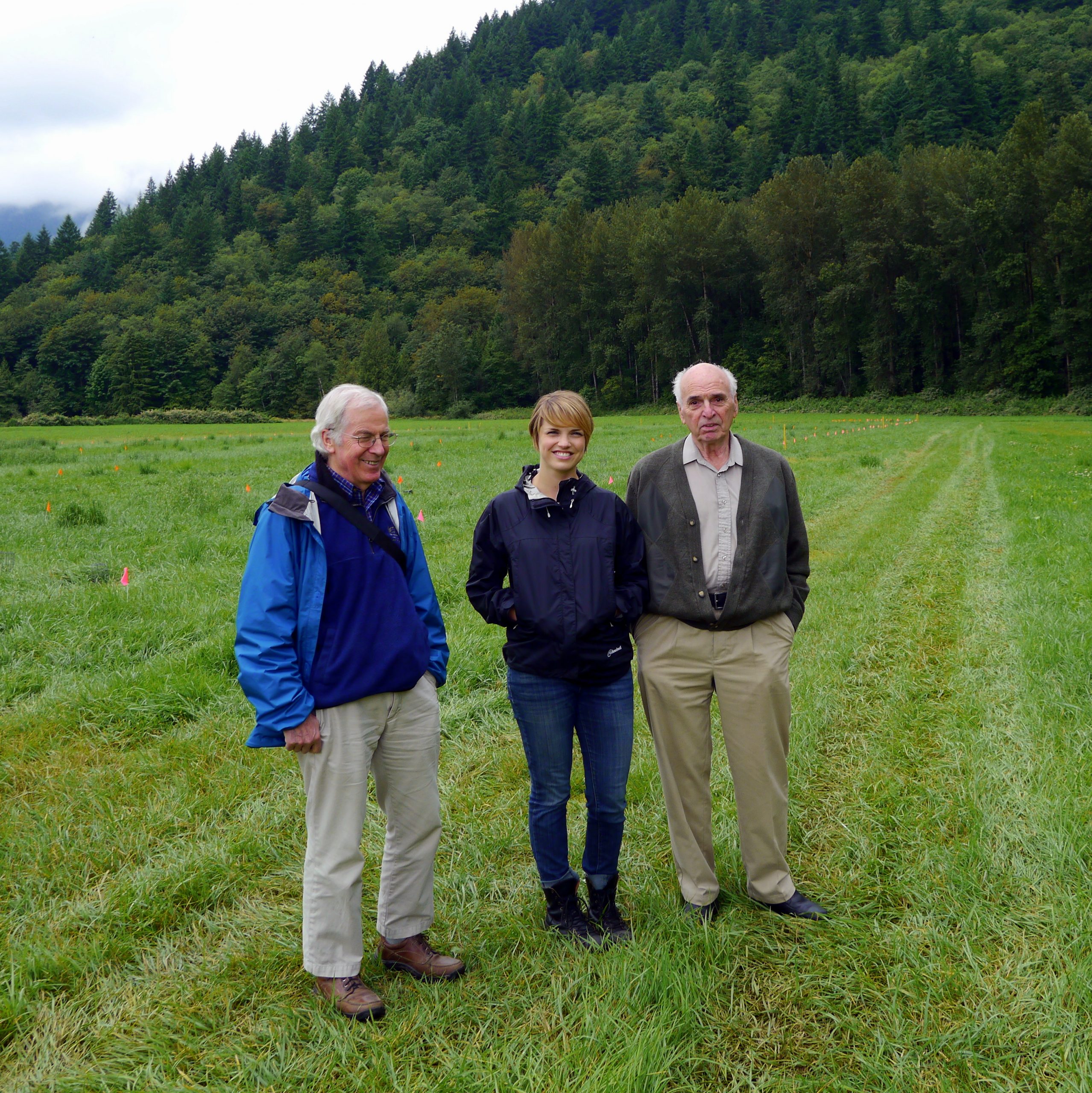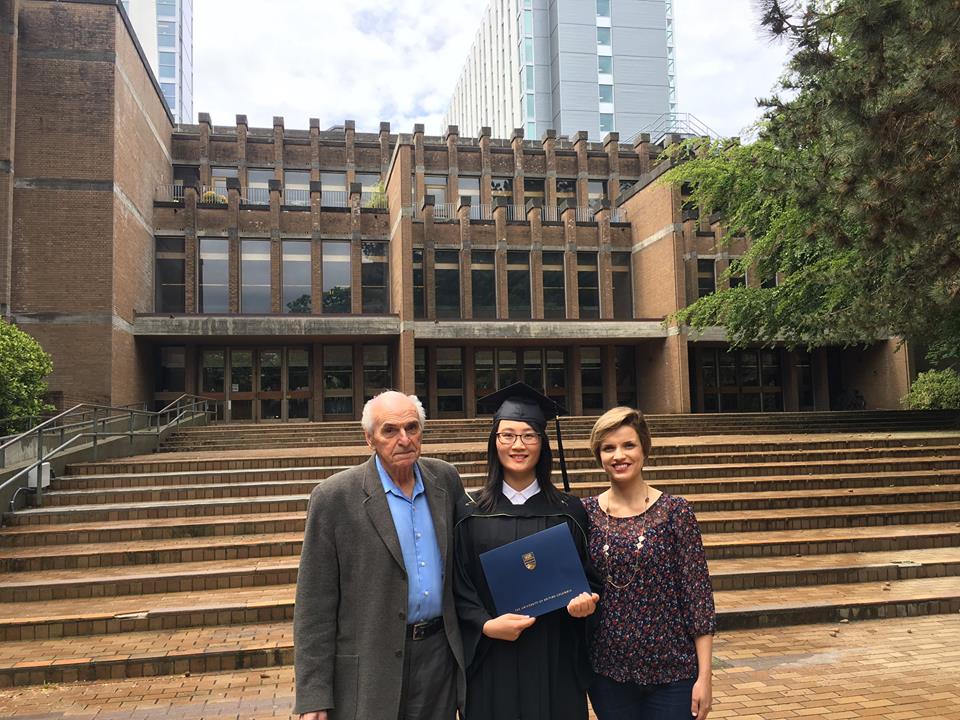Courses
The First Step Towards Building Your Professional Career
In UBC’s courses, students will become a part of enriched learning environments and participate in flexible, blended educational settings from world-class educators.

Required Courses (21 credits)
LWS 501 offers an integrative approach to understanding the complex, multi-scale processes of soil systems essential for building sustainable and resilient terrestrial ecosystems. By studying soil processes at both pedon and landscape scales, students will learn to assess the impacts of soil-forming factors and human activities on soil characteristics and ecosystem functions. Upon completion, students will be able to evaluate and apply soil science principles to enhance ecosystem sustainability and resilience, with a focus on soil-plant interactions and biogeochemical cycles.
LWS 510 is a weekly seminar series that delves into current and emerging issues within land and water systems, emphasizing the importance of professional credibility and exposure. Students will develop critical analytical skills for public presentations, offering informed insights into key topics in land and water systems. The course aims to enhance students' ability to engage in professional dialogue, select appropriate formats for communication, and present effectively in a seminar setting.
LWS 517 focuses on a “systems” approach to assessing and evaluating land and water resources. It provides guidance in critical reading, methods and approaches to assessing and interpreting information based on different values and governance systems. The aim is to provide students with the opportunity to develop processes and experiences by which they can facilitate their academic disciplinary experience into a more holistic framework.
(Note: A student can get credit for both LWS 515 and 517 towards the degree)
LWS 515 provides a comprehensive overview of watershed science and the principles of integrated watershed management. Students will learn to characterize watershed components, investigate the impacts of land use on water resources, and develop community-based management strategies. By the end of the course, students will understand the effects of human activities on water resources and be equipped to assess and improve watershed health.
(Note: A student can get credit for both LWS 515 and 517 towards the degree)
LWS 550 explores effective communication in the complex realm of land and water systems, essential skills sought by employers in today's professional landscape. Focusing on issues that span multiple jurisdictions and involve diverse stakeholders and rightsholders, the course prepares students to engage in meaningful collaboration and articulate well-supported arguments. By honing critical review skills and leveraging digital media tools, students will learn to connect scientific knowledge with broader audiences, enhancing their professional credibility and impact in the field.
FRE 302 introduces students to the principles of business planning and management with an emphasis on the areas of finance, marketing, entrepreneurship, legal structure, risk and strategy within the context of small to medium businesses involved in the food and agribusiness sector. The course will emphasize both fundamental business planning concepts and the unique challenges facing food and agribusiness firms.
LWS 548 - As the capstone course for the Master of Land and Water Systems (MLWS) program, the Major Project allows students to address a land and water system issue within a holistic framework grounded in credible scientific analysis. Students will produce a professional paper and present their findings in an open forum, showcasing their academic achievements. Additionally, they will publish a unique communication feature to inform and engage diverse audiences, highlighting key findings and recommendations.
*If you have any questions, please email us at mlws.program@ubc.ca
Major Project
Each student will be required to register for LWS 548 (6 credits) and complete a “major project”. This may be conducted off-campus and supported by a recognized professional (for example, a Professional Agrologist, Biologist, Geoscientist, etc.).
Because this is a course-based degree, a Master’s thesis is not required. Instead, students carry out a major project during the summer term under the supervision of a UBC Faculty Member, and in many cases, guidance from professional collaborators. The Major Project has no designated classroom time.
Learn More
Elective Courses (12 credits)
By offering elective courses, the Master of Land and Water Systems program provides flexibility in its curriculum, allowing you to develop specific expertise that is customized to your particular goals. These courses are offered in the Winter Session (Term 1 & 2).
Please note that not all elective courses listed below are offered every academic year. Ensure that you have necessary prerequisites or equivalents for your elective courses. Other courses may be substituted with the permission of the MLWS Academic Coordinator. For information on how to view and register for courses in Workday Student, visit https://workday.students.ubc.ca/course-registration/
- CONS 310 (3) Ecology in a Changing Climate (Term 2)
- CONS 340 (3) Introduction to Geographic Information Systems for Forestry and Conservation (Online, Term 1 or Term 2) *Not offered in the 2025/26 academic year.
- CONS 505 (3) Ecological Restoration (Term 2)
- EOSC 325 (3) Principles of Physical Hydrogeology (Term 1)
- EOSC 330 (3) Principles of Geomorphology (Term 1)
- EOSC 410 (3) Geoscientific Data Analysis and Empirical Modelling (Term 1)
- EOSC 429 (3) Groundwater Contamination (Term 2)
- EOSC 474 (3) Marine Pollution (Term 1)
- EOSC 533 (3) Groundwater Modelling in Practice (Term 1) - This elective is only recommended for students who have completed a hydrology course previously.
- FRST 443 (3) Remote Sensing for Ecosystem Management (Term 2) *Not offered in the 2025/26 academic year.
- FRST 495 (3) Biological Diversity and Conservation (Term 2)
- FRST 551 (3) Landscape Planning for Sustainability (Term 2)
- FRST 575/PLNT 575 (3) Indigenous Ecologies (Term 1)
- FRST 590 (3) Statistical Methods in Hydrology (Term 2)
- APBI 319 (3) Aquaculture and the Environment (Term 1)
- APBI 342 (3) Soil Biology (Term 2)
- APBI 361 (3) Key Indicators of Agroecosystem Sustainability (Term 2, Online)
- APBI 444 (3) Agroforestry (Term 1)
- APBI 490F (3) Soils and Landscapes (Term 1) * Mandatory field school component in the last week of August, 2025*
- GEOS 370 (3) Advanced Geographic Information Science (Term 1 or Term 2)
- GEOS 373 (3) Remote Sensing: Monitoring Earth's Surface from Afar (Term 2)
- GEOS 407 (3) Vegetation Dynamics: Disturbance, Climate and Human Impacts (Term 2)
- FRE 385 (3) Quantitative Methods for Business and Resource Management (Term 2)
- PLNT 505 (3) Plant-Water Relations for Sustainable Agriculture (Term 2)
**Students can only register for ONE upper-level undergraduate elective course (3xx/4xx course code, 3 credits) in the MLWS program. Electives should primarily be graduate courses (5xx course code).
***If a student wishes to drop a course and register in an alternative course after the add/drop deadline, the student must contact the Instructor of the new course before requesting a change in course registration. If the Instructor agrees, they will provide requirements for the late registration. Finally, before making any registration changes, the student must contact the Academic Coordinator or Director to be discussed and approved in advance. Please note that registering in a course after the add/drop deadline will result in a W standing entered on their academic transcript.

